The evolution of business analytics tools has transformed decision-making processes across industries. No longer are organizations limited to basic reporting; they now leverage advanced analytics to derive actionable insights from complex datasets. This shift has led to a surge in demand for tools that can seamlessly integrate with existing systems and provide real-time analytics to inform strategic choices.
As businesses increasingly embrace data-driven strategies, the need for effective analytics solutions tailored to their specific challenges has never been more critical. Companies like Netflix and Amazon have thrived by utilizing sophisticated analytics to understand customer behavior and optimize their offerings. This trend highlights the necessity for organizations of all sizes to invest in robust analytics tools that can adapt to their evolving needs.
Whether you're a small business looking to optimize your marketing efforts or a large enterprise seeking to streamline operations, the right analytics tool can make all the difference. In the following sections, we'll explore some of the best Domo alternatives, each with its unique strengths and capabilities.
Best for: Marketers seeking comprehensive attribution tracking.
Cometly is a marketing attribution and analytics platform that shows exactly which ads and channels drive leads and revenue.
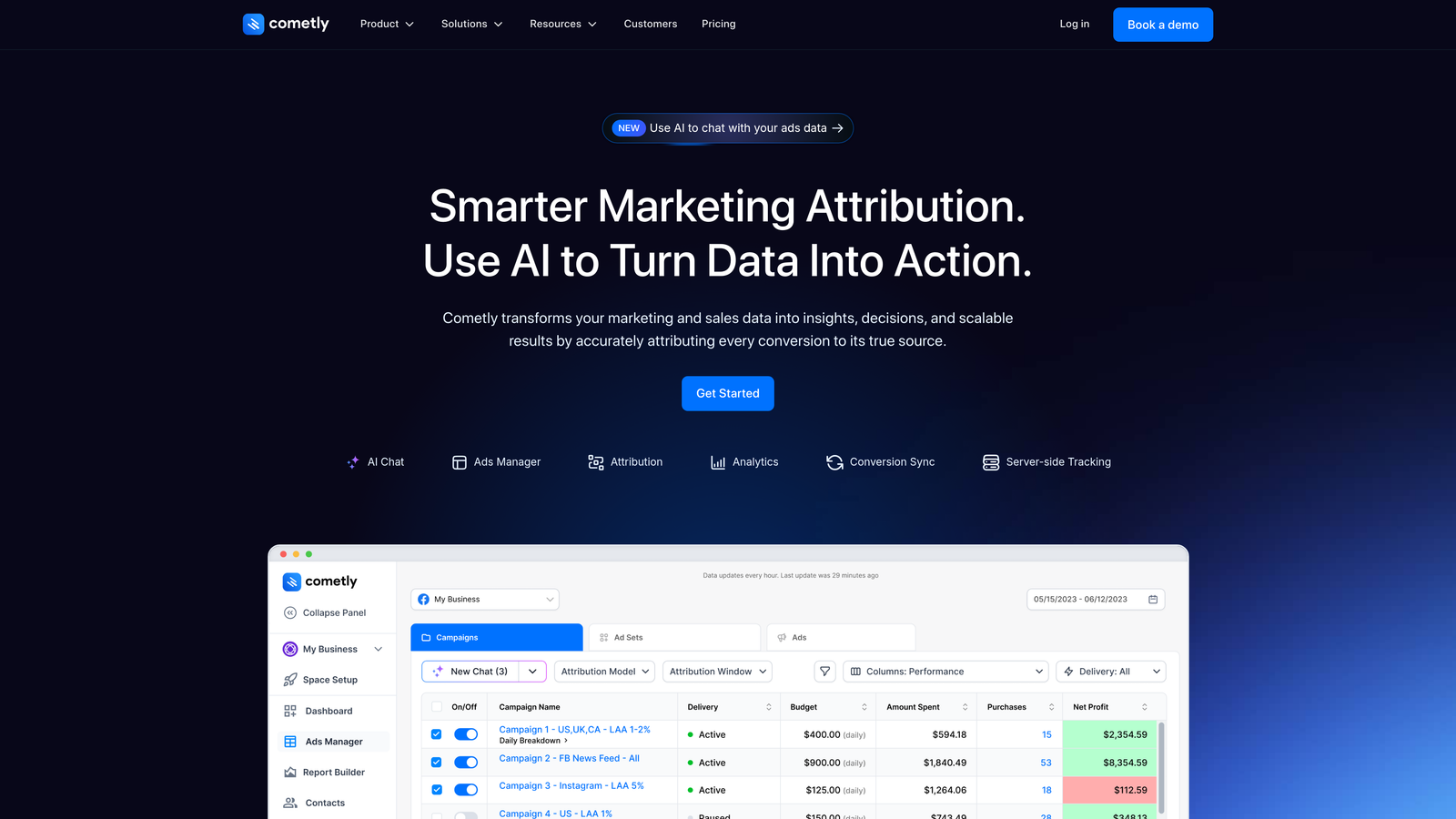
Cometly connects your ad platforms, CRM, and website to track the entire customer journey in real time, allowing businesses to analyze ad performance and make data-driven decisions.
Overview & Background: Founded with the mission to enhance marketing analytics, Cometly has emerged as a go-to solution for marketers looking to optimize their campaigns. By providing a complete view of customer interactions, it enables users to understand the effectiveness of their marketing strategies better.
Key Features & Capabilities:
1. Multi-Touch Attribution: Cometly captures every touchpoint across various channels, providing a detailed view of how each interaction contributes to conversions.
2. AI-Driven Recommendations: The platform leverages artificial intelligence to identify high-performing ads and campaigns, helping marketers scale their efforts with confidence.
3. Real-Time Data Tracking: Users can access up-to-date analytics, ensuring they can respond rapidly to changes in campaign performance.
How It Works: Cometly integrates seamlessly with popular ad platforms and CRMs, allowing for easy data synchronization. By tracking user interactions from ad clicks to final conversions, it provides insights that are often missed by traditional analytics tools.
Pricing & Plans: Cometly offers tiered pricing based on the features and level of support required, often proving more cost-effective than Domo for similar capabilities.
Why It's Great for Marketers: Marketing professionals and agencies benefit from Cometly's focus on attribution, ensuring they understand what truly drives revenue and allowing for optimized ad spend.
Best for: Businesses needing advanced data visualization capabilities.
Tableau is a leader in data visualization, simplifying complex datasets into visually appealing and actionable insights.
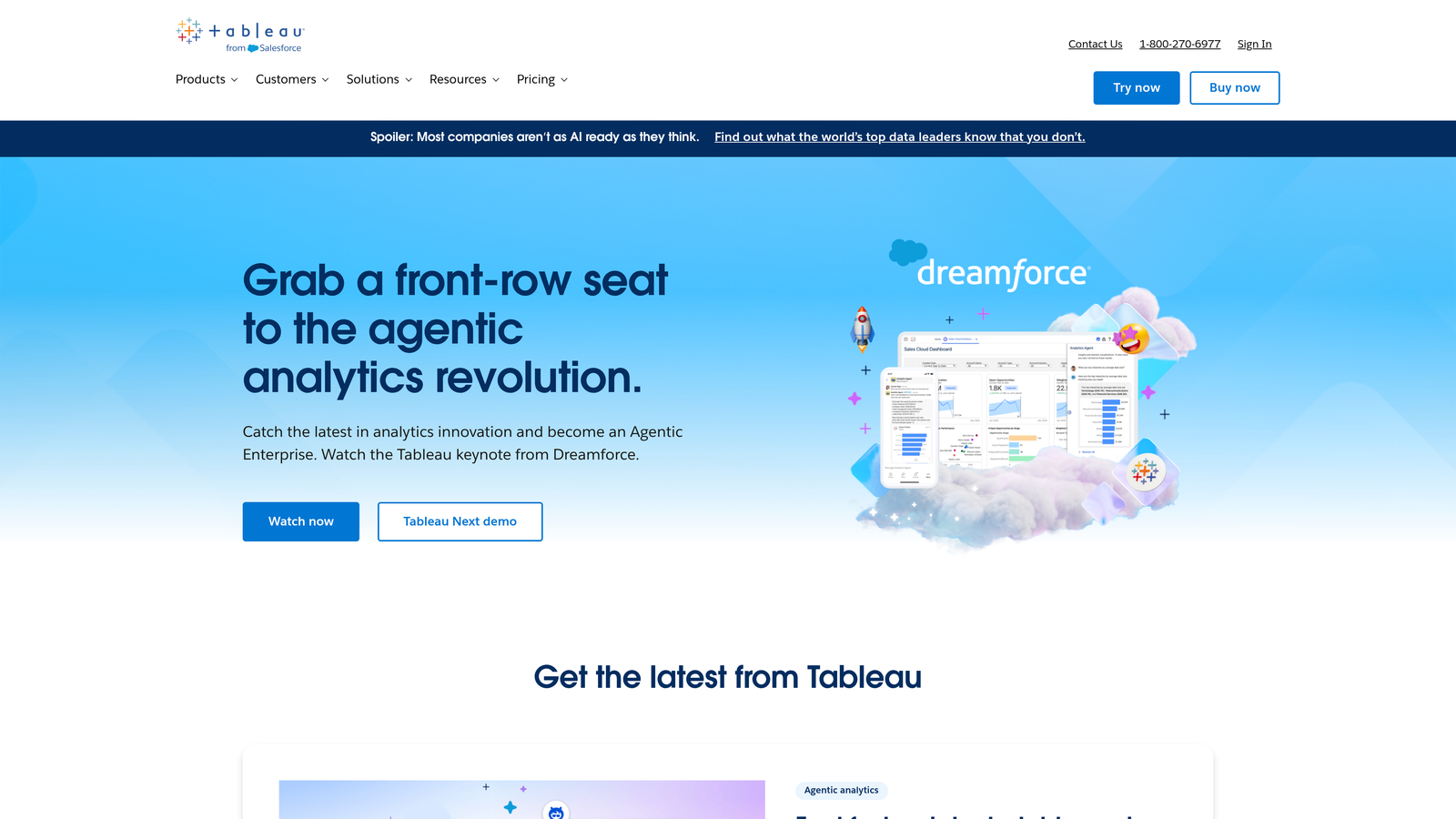
With its intuitive interface and powerful visualization tools, Tableau empowers users to analyze data and make informed decisions quickly.
Overview & Background: Tableau has transformed the landscape of data visualization since its inception, allowing users from various industries to create interactive dashboards and reports without needing extensive coding knowledge.
Key Features & Capabilities:
1. Interactive Dashboards: Users can create customized dashboards that provide real-time insights into key performance indicators, enhancing decision-making.
2. Data Connectivity: Tableau supports a wide range of data sources, making it easy to integrate and analyze data from multiple platforms.
3. Collaboration Tools: The platform facilitates collaboration among teams, allowing for shared insights and collective decision-making.
How It Works: Tableau's drag-and-drop interface allows users to visualize data effortlessly. By connecting to various data sources, it enables real-time data analysis, making it a favorite among data analysts and business intelligence teams.
Pricing & Plans: Tableau's pricing is competitive, with various plans catering to different organizational sizes and needs, often providing better value compared to Domo for visualization-focused tasks. Learn more about top Tableau alternatives.
Why It's Great for Data Analysts: Data analysts and business intelligence teams appreciate Tableau for its powerful visualization capabilities, enabling them to convey insights effectively across the organization.
Best for: Companies looking for embedded analytics.
Looker offers a unique approach to data exploration and business intelligence, focusing on embedding analytics directly into business workflows.
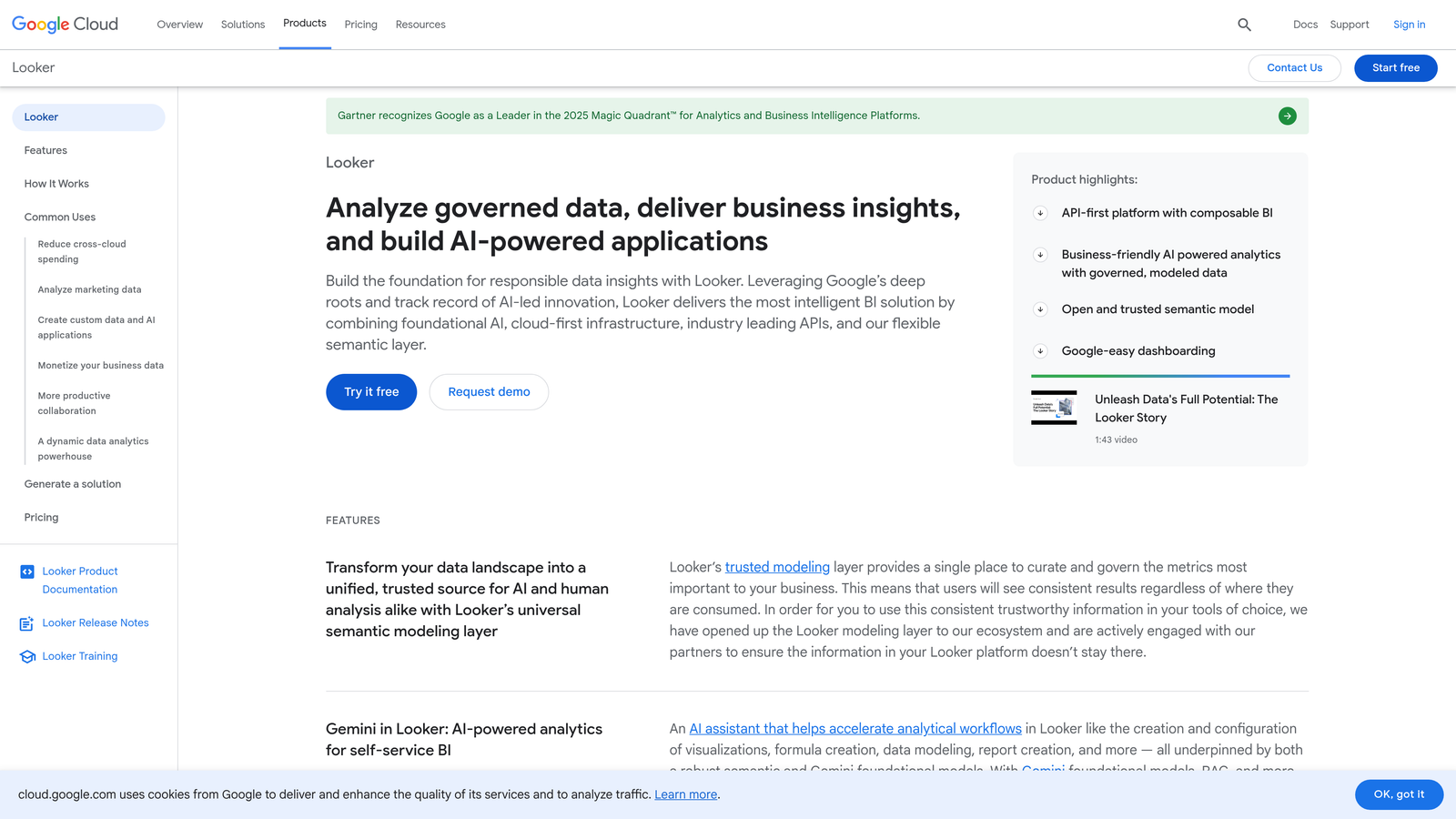
This tool is designed to deliver actionable insights within applications, enhancing user experience and decision-making capabilities.
Overview & Background: Looker has carved a niche for itself by enabling organizations to embed analytics into their daily operations, thus transforming how teams interact with data.
Key Features & Capabilities:
1. LookML for Custom Data Modeling: Looker's proprietary modeling language allows for custom analytics tailored to specific business needs.
2. Embedded Analytics: Looker enables businesses to integrate analytics directly into their applications, providing users with relevant insights without leaving their workflows.
3. Real-Time Collaboration: Teams can collaborate on data insights in real-time, fostering a data-driven culture within the organization.
How It Works: Looker connects to various data warehouses, allowing users to explore and visualize data through its intuitive interface. It empowers organizations to make data-driven decisions without needing separate analytics tools.
Pricing & Plans: Looker offers flexible pricing models, making it accessible for organizations of all sizes while providing a comprehensive suite of analytics features. Learn more about top Looker Studio alternatives.
Why It's Great for Organizations Focused on Embedded Analytics: Companies seeking to integrate analytics into their applications will find Looker's capabilities invaluable for enhancing user engagement and maximizing data utility.
Best for: Microsoft ecosystem users looking for integration.
Power BI is a powerful tool for data analysis and visualization within Microsoft’s suite of products.

It offers seamless integration with other Microsoft services, making it an attractive option for businesses already using Microsoft tools.
Overview & Background: Power BI has gained popularity for its ability to connect with various data sources and provide users with real-time insights, making it a staple in many organizations.
Key Features & Capabilities:
1. Seamless Microsoft Integration: Power BI integrates smoothly with Excel, Azure, and other Microsoft products, enhancing usability for existing Microsoft users.
2. Robust Reporting Tools: The platform offers comprehensive reporting features that allow users to create detailed reports easily.
3. Interactive Dashboards: Users can build interactive dashboards that visually represent their data, providing insights at a glance.
How It Works: Power BI connects to various data sources, enabling users to visualize data effectively. Its integration with Microsoft products enhances collaboration and efficiency.
Pricing & Plans: Power BI's pricing is competitive, often proving to be more affordable for small businesses compared to Domo, especially when considering its range of features.
Why It's Great for Teams Using Microsoft Tools: Organizations already leveraging Microsoft products will benefit significantly from Power BI's seamless integration and powerful analytics capabilities.
Best for: Organizations needing embedded analytics and BI.
Sisense is known for its robust analytics capabilities and user-friendly interface, making it a favorite among enterprises.

By offering powerful analytics tools, Sisense helps organizations harness complex data to drive better decision-making.
Overview & Background: Sisense has established itself as a leader in analytics by providing an easy-to-use platform that empowers organizations to analyze large datasets efficiently.
Key Features & Capabilities:
1. Data Modeling: Sisense offers advanced data modeling capabilities, allowing users to create complex datasets tailored to their specific needs.
2. Integration Capabilities: The platform supports a wide range of integrations, making it easy to connect disparate data sources.
3. User-Friendly Interface: Sisense is designed with the user in mind, providing an intuitive interface that simplifies data exploration.
How It Works: Sisense allows users to connect to multiple data sources, integrating and analyzing them within a single platform. Its user-friendly interface makes it accessible to users of all skill levels.
Pricing & Plans: Sisense offers several pricing tiers, making it a flexible option for organizations looking for robust analytics solutions without the high costs associated with Domo. Learn more about top Sisense alternatives.
Why It's Great for Enterprises: Enterprises seeking a powerful analytics tool that can handle complex datasets will find Sisense's capabilities particularly beneficial.
Best for: Data-driven organizations requiring strong analytical capabilities.
Qlik Sense is recognized for its interactive dashboard capabilities, allowing users to explore data deeply.
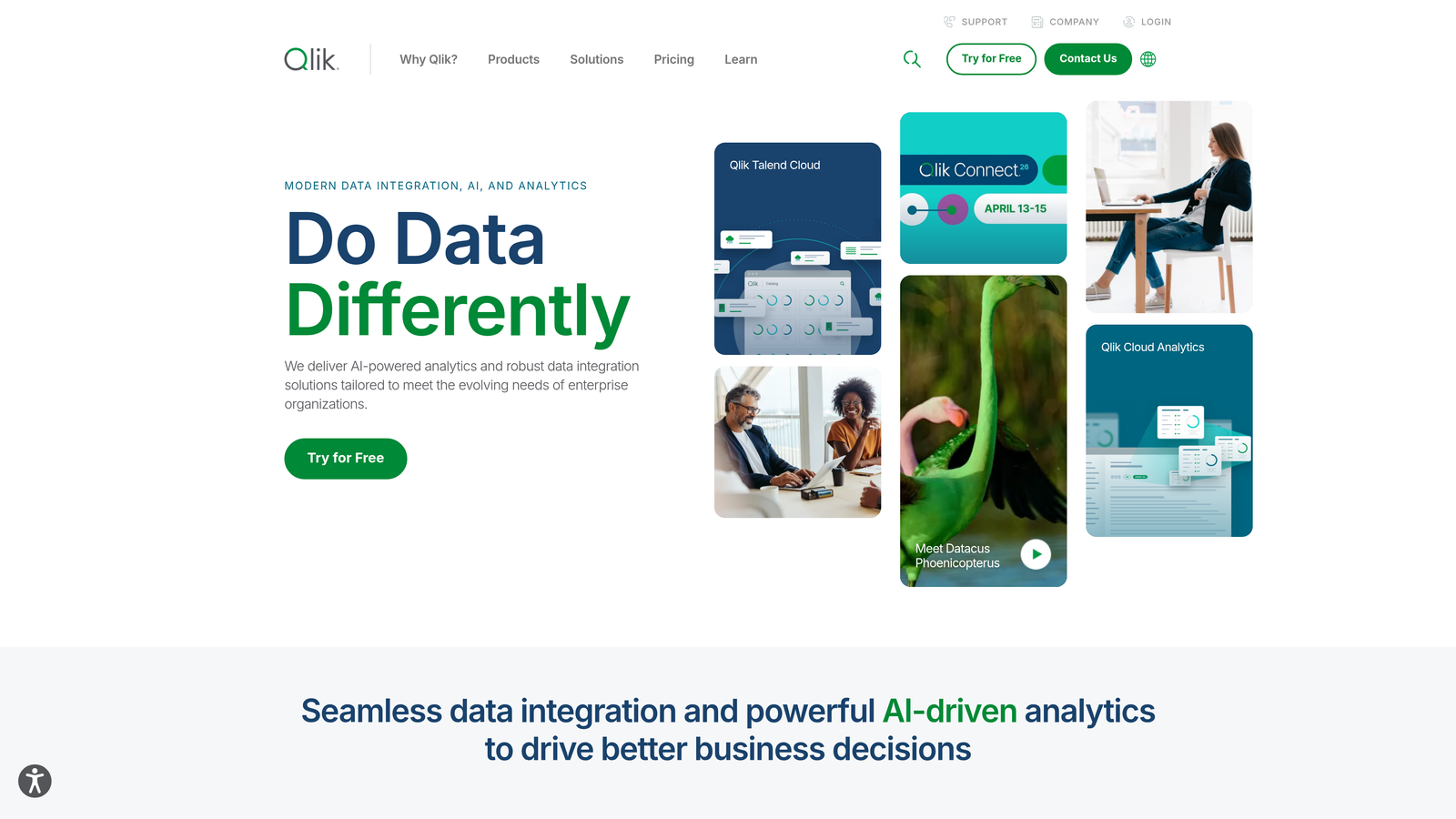
With its associative data model, Qlik Sense empowers users to uncover insights that might be hidden in traditional analytics tools.
Overview & Background: Qlik Sense has made a name for itself by enabling organizations to visualize and analyze their data in innovative ways, fostering a culture of data exploration.
Key Features & Capabilities:
1. Associative Data Model: Qlik Sense's unique data model allows users to explore data freely and discover insights without predefined queries.
2. Self-Service Analytics: The platform empowers users to create their own analyses and visualizations without relying on IT teams.
3. Customizable Dashboards: Users can create tailored dashboards that meet their specific analytical needs.
How It Works: Qlik Sense connects to various data sources and allows users to explore their data through an intuitive interface, making it easy to uncover insights.
Pricing & Plans: Qlik Sense provides flexible pricing options that can be more cost-effective than Domo, especially for organizations looking for advanced analytical features. Learn more about top Qlik alternatives.
Why It's Great for Data Visualization: Organizations focused on data exploration and visualization will find Qlik Sense's capabilities particularly valuable for uncovering insights.
Best for: Businesses needing a free, user-friendly reporting tool.
Google Data Studio provides customizable reporting capabilities that integrate seamlessly with other Google services.
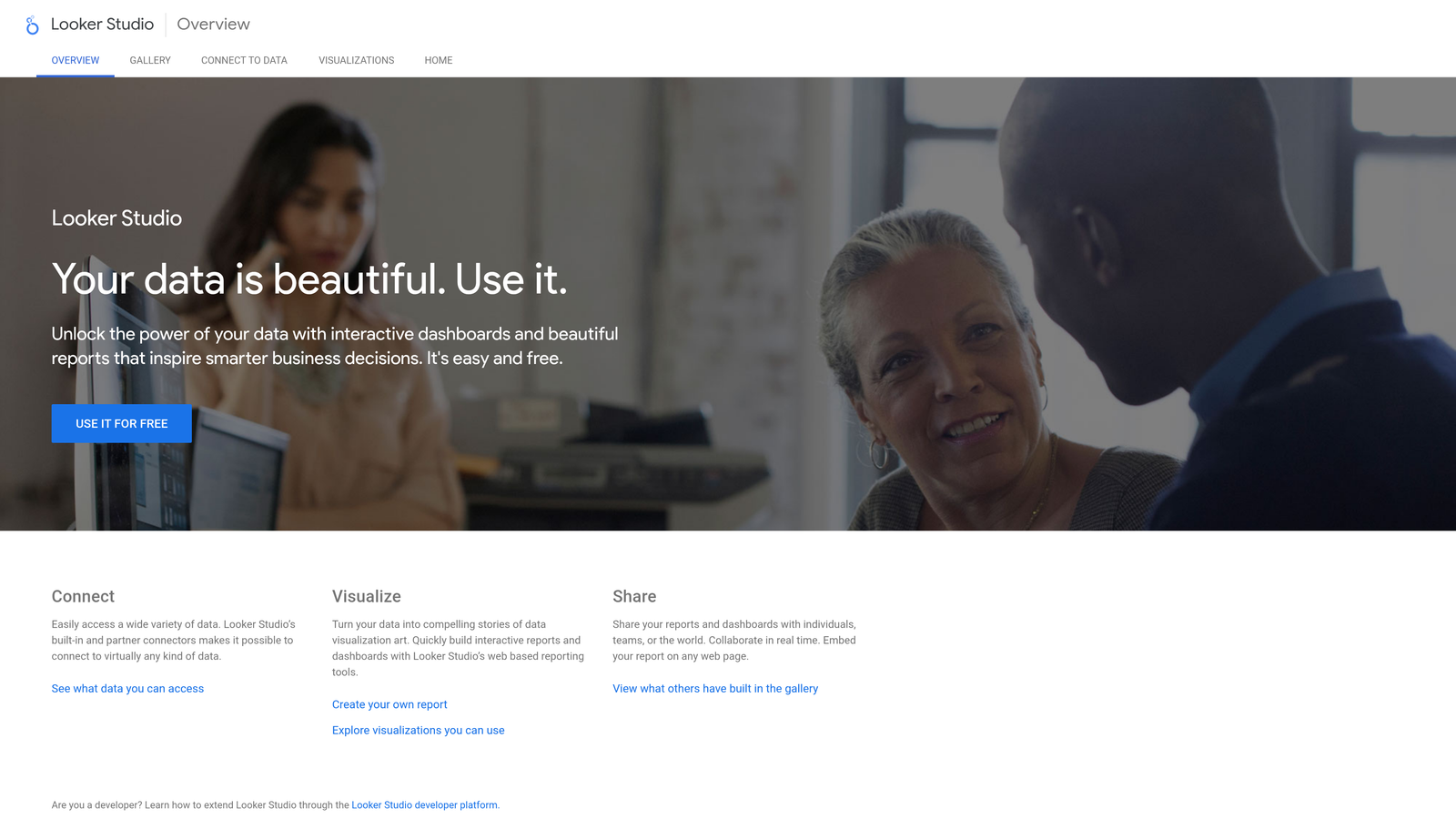
This tool is perfect for small businesses and startups looking to create effective reports without the financial burden.
Overview & Background: Google Data Studio has quickly become a favorite for organizations looking for a straightforward reporting solution that leverages existing Google services.
Key Features & Capabilities:
1. Integration with Google Services: The tool integrates effortlessly with Google Analytics, Google Ads, and other Google products, making it easy to consolidate data.
2. Customizable Visualization Options: Users can create reports tailored to their needs with various visualization options available.
3. Collaboration Features: Google Data Studio allows for easy sharing and collaboration, making it a great choice for teams.
How It Works: Users can connect to multiple data sources and create interactive reports that provide insights in real time, all within a user-friendly interface.
Pricing & Plans: As a free tool, Google Data Studio offers significant cost-saving potential for small businesses while still providing robust reporting features.
Why It's Great for Small Businesses: Small businesses and startups benefit from Google Data Studio's ease of use and cost-effectiveness, making it an excellent choice for those just starting with data analytics.
Choosing the right analytics tool is crucial for optimizing your business's decision-making processes. As we've explored the top Domo alternatives, it's essential to evaluate your specific needs and the unique features each tool offers.
Understanding your business requirements is the first step in selecting the right analytics tool. Consider key factors such as budget, user-friendliness, and required features. For example, if your organization relies heavily on marketing analytics, tools like Cometly may be a better fit than more generalized platforms.
When comparing tools, focus on essential features like data integration, visualization capabilities, and reporting options. A comparison table can help visualize these differences, guiding your decision-making process.
Pricing models can vary significantly among analytics tools. Evaluate the cost-effectiveness of free options, like Google Data Studio, against premium solutions like Tableau or Qlik Sense, and consider the potential return on investment each might offer.
Switching from Domo to an alternative tool can present challenges, but with careful planning, you can ensure a smooth transition. Consider user training and support resources to help your team adapt to the new platform successfully.
Exploring Domo alternatives presents a valuable opportunity to enhance your business's analytics capabilities. Each tool discussed offers unique features tailored to different needs, from comprehensive attribution tracking with Cometly to advanced visualization with Tableau.
As you reflect on your specific requirements, consider how these alternatives can empower your decision-making and drive your business forward. Don't hesitate to explore these tools in-depth and find the one that aligns best with your goals.
Ready to take the next step? Get your free demo of Cometly today, and discover how our platform can revolutionize your marketing analytics!
Learn how Cometly can help you pinpoint channels driving revenue.
.svg)
Network with the top performance marketers in the industry